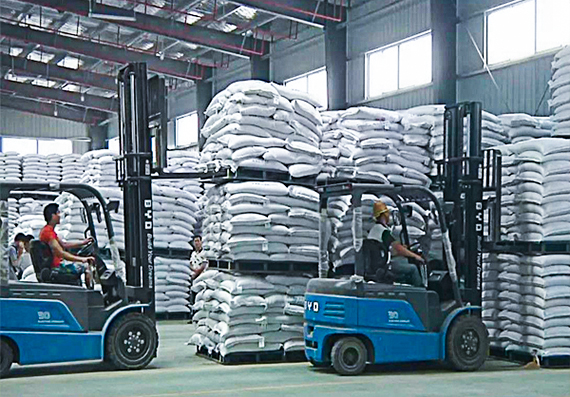
Nov . 13, 2024 20:51 Back to list
humate fertilizer
The Benefits of Humate Fertilizer A Natural Solution for Sustainable Agriculture
In recent years, the agricultural industry has witnessed a growing interest in sustainable farming practices that prioritize environmental health and soil fertility. One of the standout options in this regard is humate fertilizer, which is derived from humic substances—organic compounds formed from the decomposition of plant and animal matter. This article explores the myriad benefits of humate fertilizer, its applications in agriculture, and its contribution to sustainable farming practices.
What is Humate Fertilizer?
Humate fertilizer is a natural substance rich in humic acids, fulvic acids, and a variety of trace minerals. These components are critical for enhancing soil structure, promoting nutrient availability, and improving plant growth. Humate fertilizers can be derived from various sources, including lignite (a type of coal), leonardite, and composted organic matter. By utilizing these organic materials, humate fertilizers provide a balanced approach to soil management that nurtures the ecosystem.
Enhancing Soil Health
One of the primary benefits of humate fertilizer is its ability to improve soil health. Humic substances work to enhance soil structure, contributing to better aeration and water retention. As a result, plants have better access to moisture, nutrients, and oxygen, which are essential for robust growth. This improved soil structure also fosters the development of beneficial microorganisms, which further contribute to soil fertility.
Additionally, humate fertilizer helps to increase soil organic matter, which is vital for maintaining soil health
. A higher organic matter content improves the soil's ability to retain nutrients and water, making it more resilient to drought and other environmental stressors. This resilience is particularly important in the face of climate change, as erratic weather patterns become more prevalent.Nutrient Uptake and Fertilizer Efficiency
humate fertilizer

Humate fertilizers are known to enhance the availability of essential nutrients to plants. The unique composition of humic and fulvic acids allows these organic compounds to chelate nutrients, making them more accessible for plant uptake. This means that even if the soil is lacking in certain nutrients, the presence of humate can help mobilize and provide those nutrients to the plants.
Moreover, humate fertilizers improve the efficiency of synthetic fertilizers when used in conjunction. By enhancing the soil's ability to retain nutrients, humate can reduce nutrient leaching—an issue that often leads to environmental pollution and reduced fertilizer efficacy. This results in lower input costs for farmers and a reduced environmental footprint, aligning with the goals of sustainable agriculture.
Promoting Healthy Plant Growth
The application of humate fertilizer can lead to healthier and more vigorous plant growth. Research has shown that humic substances stimulate root development, leading to a more extensive root system. A robust root system supports better nutrient and water uptake, which contributes to improved plant vigor and crop yields. Additionally, plants treated with humate fertilizers often exhibit increased resistance to pests and diseases, reducing the need for chemical pesticides.
Environmentally Friendly Agriculture
One of the key advantages of humate fertilizer is its environmentally friendly nature. As a natural amendment, humates contribute to sustainable farming practices by reducing the reliance on synthetic fertilizers and harmful chemicals. By promoting soil health and fertility through organic means, humate fertilizers help farmers adhere to environmentally sustainable practices that can mitigate the negative impacts of agriculture on ecosystems.
Conclusion
Humate fertilizer represents a promising solution for farmers looking to improve soil health, enhance nutrient availability, and promote sustainable agricultural practices. By harnessing the power of humic substances, farmers can develop resilient crops while maintaining ecological balance. As the agricultural sector continues to evolve in response to climate change and environmental concerns, humate fertilizers offer a natural and effective way to cultivate healthy, thriving ecosystems. Embracing such sustainable practices is not only beneficial for agricultural productivity but also essential for the long-term health of our planet.
-
Premium 8 12 16 Fertilizer – High-Efficiency Compound & Granular NPK Supplier
NewsJun.10,2025
-
High Quality Agricultural Grade NPK Fertilizer Manufacturer & Supplier Reliable Factory Price
NewsJun.10,2025
-
Organic Fertilizer for Corn Boost Yield Sustainably
NewsJun.10,2025
-
Organic Fertilizer for New Plants Natural Growth Boost & Eco Nutrients
NewsJun.10,2025
-
Optimized Hydroponic NPK Fertilizer – Fast Growth & Nutrients
NewsJun.09,2025
-
Top-Rated NPK Fertilizer for Fruit Trees - Boost Growth & Yield
NewsJun.09,2025
